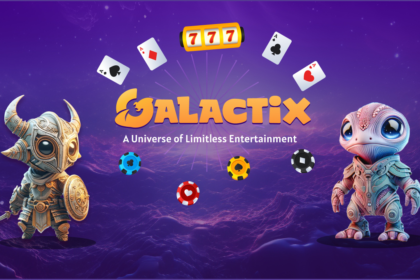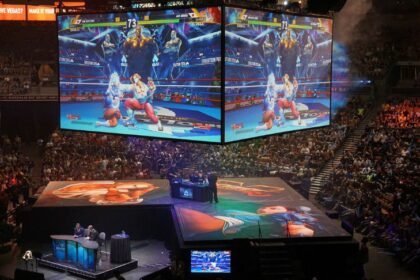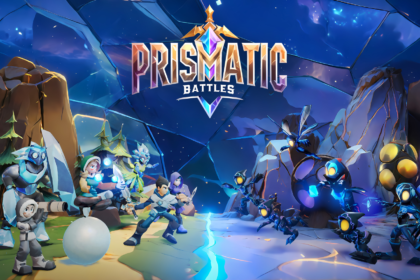The gaming industry has come a long way since the days of arcade games and console-based gaming.
With the advent of the internet and the rise of web-based games, the industry has seen a significant shift towards Web2 gaming. However, the emergence of blockchain technology has given rise to a new paradigm of gaming, known as Web3 gaming. In this article, we will explore the differences between Web2 and Web3 gaming and their potential impact on the industry.
What is Web2 gaming?
Web2 gaming refers to games that are built on centralized platforms such as Steam, PlayStation Network, and Xbox Live. These games are typically developed by large game studios and require players to download and install the game on their devices. Web2 gaming is characterized by the following features:
Centralized servers
Web2 games rely on centralized servers to handle game logic and data storage. This means that the game experience is controlled by the game developer, and players have limited control over the game environment.
Closed ecosystems
Web2 gaming ecosystems are closed, meaning that players cannot interact with games outside of the platform they were purchased on. This limits the ability of players to trade or transfer in-game items, and they are often subject to restrictions imposed by the platform.
Limited ownership and control
Players have limited ownership and control over their in-game items and progress. In most cases, the game developer has complete control over in-game assets, and players cannot transfer or sell them outside of the platform.
Lack of transparency
Web2 games lack transparency, meaning that players have limited visibility into the game’s inner workings. This can lead to concerns about fairness and bias.
What is Web3 gaming?
Web3 gaming, also known as blockchain gaming, refers to games that are built on decentralized platforms using blockchain technology. These games are typically developed by smaller studios or independent developers and are characterized by the following features:
Decentralized servers
Web3 games use decentralized servers that are distributed across the blockchain network. This means that game logic and data storage are handled by the network, rather than a central authority.
Open ecosystems
Web3 gaming ecosystems are open, meaning that players can interact with games across different platforms and trade or transfer in-game items with other players. This creates a more vibrant and dynamic game economy.
Ownership and control
Players have full ownership and control over their in-game items and progress. NFTs (Non-Fungible Tokens) are used to represent these items, which can be transferred and traded outside of the game ecosystem.
Transparency
Web3 games are transparent, meaning that players have full visibility into the game’s inner workings. This ensures that the game is fair and unbiased.
Differences between Web2 gaming and Web3 gaming
The main differences between Web2 gaming and Web3 gaming are as follows:
Ownership and control
In Web2 gaming, players have limited ownership and control over their in-game items and progress, whereas in Web3 gaming, players have full ownership and control, thanks to the use of NFTs.
Open ecosystems
Web2 gaming ecosystems are closed, while Web3 gaming ecosystems are open, allowing players to interact with games across different platforms and trade or transfer in-game items.
Decentralized servers
Web2 games rely on centralized servers, while Web3 games use decentralized servers that are distributed across the blockchain network.
Transparency
Web2 games lack transparency, whereas Web3 games are transparent, ensuring that the game is fair and unbiased.
Examples of Web3 games
Several games have already embraced Web3 gaming. Here are a few examples:
Axie Infinity
Axie Infinity is a blockchain-based game that uses NFTs to represent creatures called Axies. Players can breed and battle their Axies, and the game has created a vibrant and dynamic ecosystem, with players able to trade and sell their Axies for real money.
Decentraland
Decentraland is a virtual reality platform built on the Ethereum blockchain. Players can buy and own virtual land, build on it, and monetize their creations. The platform uses MANA, an ERC-20 token, as its in-game currency.
Gods Unchained
Gods Unchained is a collectible card game built on the Ethereum blockchain. Players can buy and sell cards using Ethereum, and the game uses NFTs to represent unique, one-of-a-kind cards.
The Sandbox
The Sandbox is a decentralized virtual gaming world where players can create, share, and monetize their own gaming experiences. Players can buy and own virtual land using SAND, the platform’s in-game currency.
The potential impact of Web3 gaming
Web3 gaming has the potential to revolutionize the gaming industry. By using blockchain technology, it creates a more open, transparent, and decentralized ecosystem that empowers players and creators. Here are a few potential impacts of Web3 gaming:
Democratization of game development
Web3 gaming allows smaller studios and independent developers to create and monetize their games, reducing the dominance of large game studios.
Player empowerment
Web3 gaming empowers players by giving them full ownership and control over their in-game assets, enabling them to monetize their gameplay and interact with games across different platforms.
A more dynamic and vibrant game economy
Web3 gaming creates a more dynamic and vibrant game economy by enabling players to trade and sell their in-game items for real money, creating new opportunities for earning and investment.
Greater transparency and fairness
Web3 gaming creates a more transparent and fair gaming experience by ensuring that game logic and data storage are decentralized and visible to all players.
Conclusion
Web3 gaming represents a significant shift in the gaming industry, offering a more open, transparent, and decentralized ecosystem. By using blockchain technology and NFTs, it empowers players and creators, creating a more vibrant and dynamic game economy. While Web2 gaming is still dominant in the industry, it’s clear that Web3 gaming has the potential to revolutionize the gaming industry and create new opportunities for players and developers alike.









